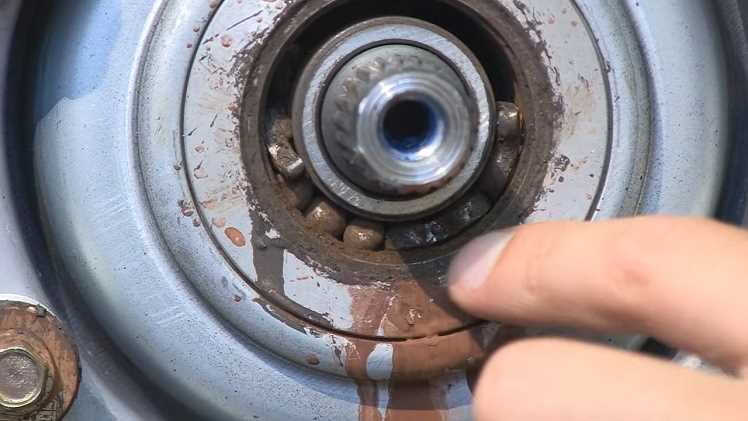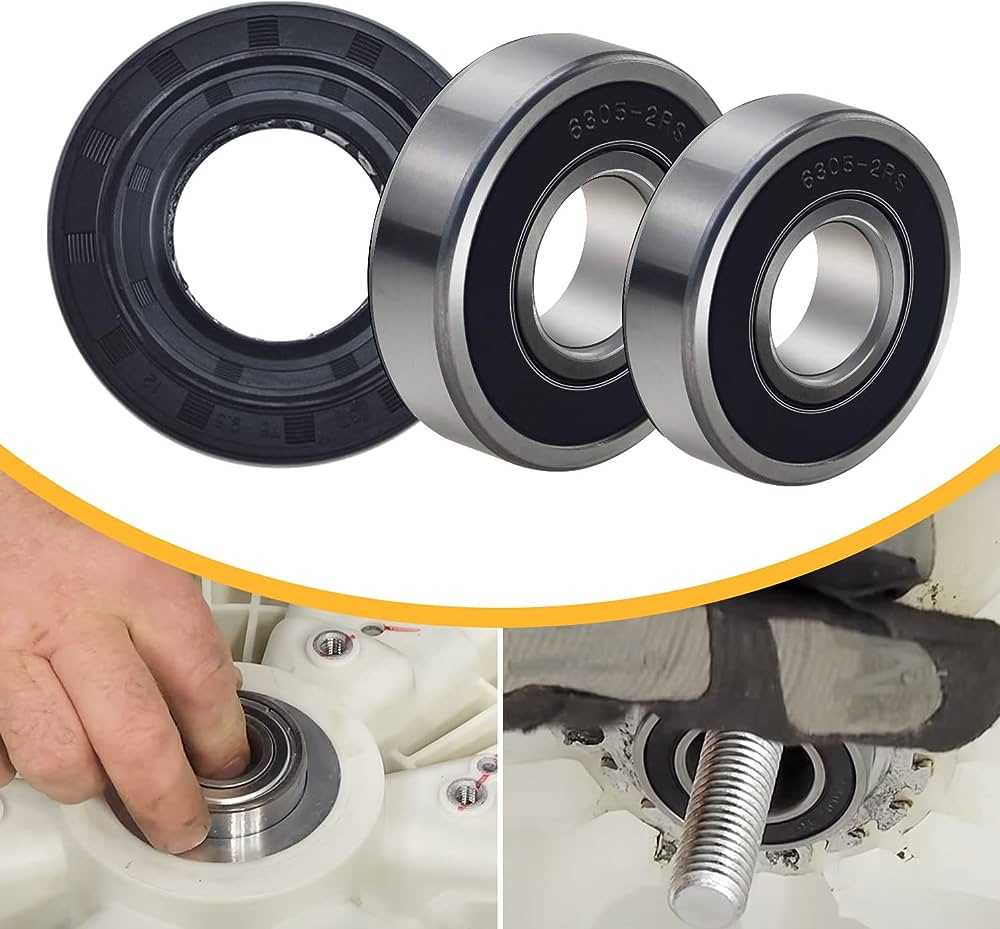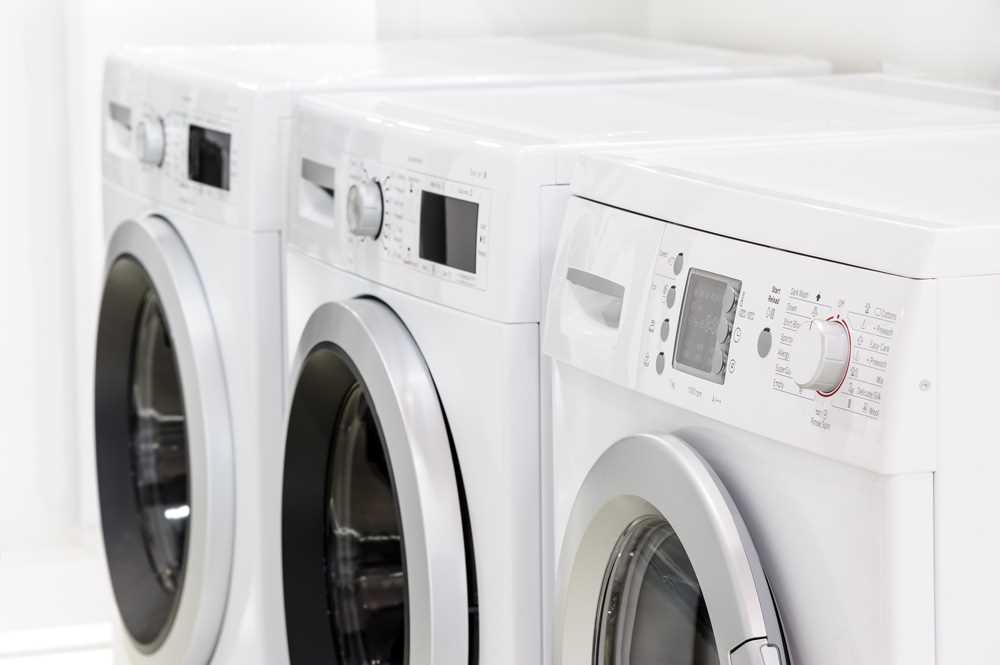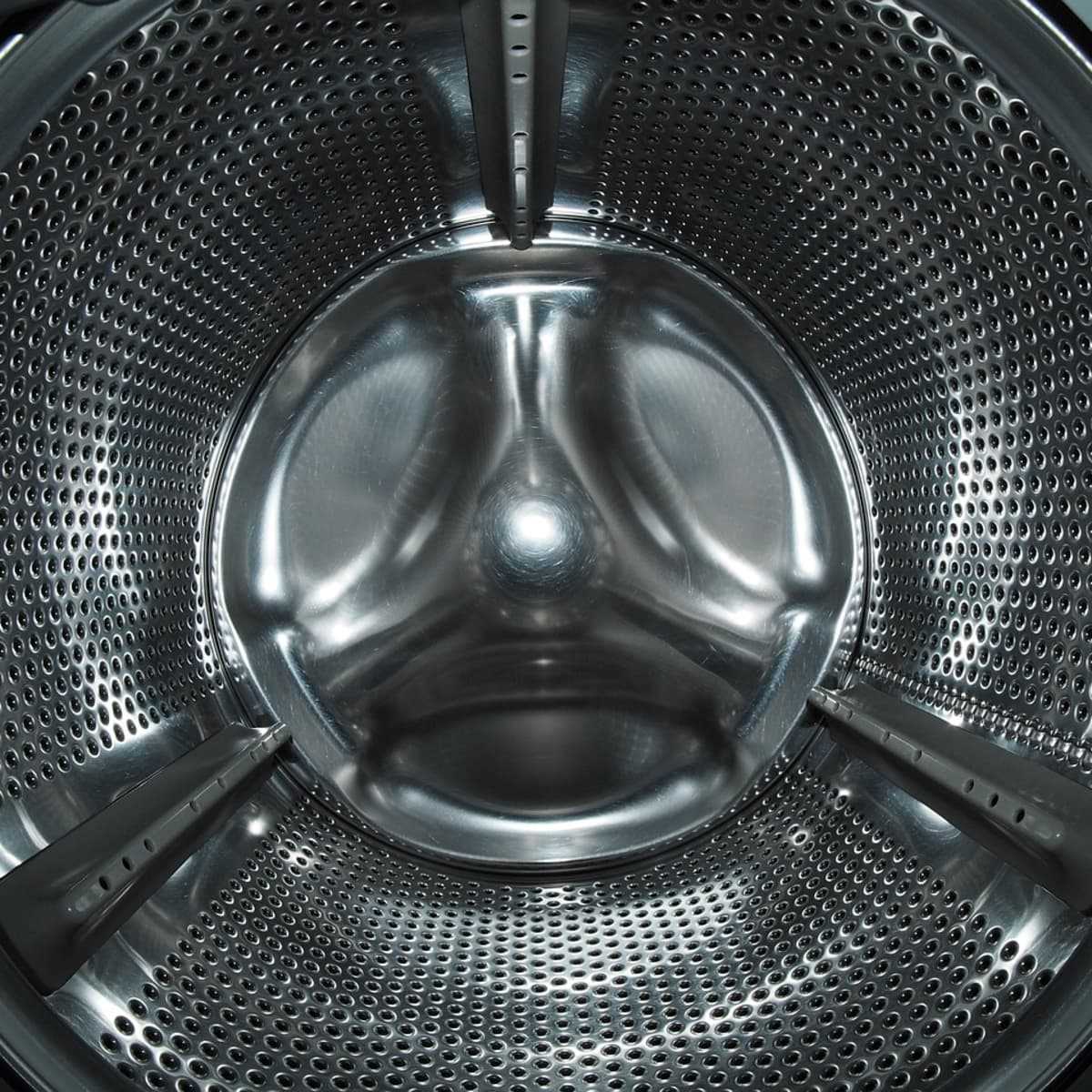


Washing machines are an indispensable part of our everyday lives. They help us keep our clothes clean and fresh, saving us time and effort. However, like any other machine, washing machines can develop faults over time. One of the most common problems is faulty bearings. But what exactly are bearings and how safe is it to continue using a washing machine with faulty bearings?
In a washing machine, bearings are responsible for supporting the drum and allowing it to spin smoothly. When these bearings become faulty, you may start noticing a few warning signs. These can include excessive noise during the spinning cycle, leaks, and excessive vibrations. If left unattended, faulty bearings can lead to more serious problems, such as damage to the drum or motor.
Using a washing machine with faulty bearings is not recommended, as it can lead to further damage and may even pose a safety risk. The excessive noise and vibrations caused by faulty bearings can be a sign that the machine is not functioning properly. This can lead to a variety of issues, including damage to the drum, increased energy consumption, and even potential injury.
In conclusion, it is best to address any issues with faulty bearings in your washing machine as soon as possible. Ignoring the problem and continuing to use the machine can result in more serious damage and potential safety hazards. It is always advisable to seek professional help or consider repairing or replacing the faulty bearings to ensure the optimal performance and safety of your washing machine.
Is Using a Washing Machine with Faulty Bearings Safe?

Faulty bearings in a washing machine can present several risks and safety concerns. While it may be tempting to continue using the machine despite the problem, it is important to consider the potential dangers and take the necessary steps to address the issue.
1. Increased Noise and Vibration
One of the first signs of faulty bearings in a washing machine is increased noise and vibration during operation. As the bearings wear out, they can become loose or damaged, causing the drum to wobble and create loud noises. This can be a nuisance and disrupt the peace in your home.
2. Reduced Washing Efficiency

Faulty bearings can also affect the performance of your washing machine. The drum may not rotate properly, leading to poor cleaning results. Clothes may not be fully submerged in water or agitated evenly, resulting in ineffective washing. Over time, this can lead to the need for re-washing and even damage to your clothes.
3. Potential Leakages
When bearings are faulty, they may cause a leak in your washing machine. The increased movement of the drum can cause damage to the seal and allow water to escape. This not only results in water wastage but can also lead to water damage in your laundry room and potentially other areas of your home if left unchecked.
4. Drum Seizing or Locking
As the bearings become more damaged, there is a higher risk of the drum seizing or locking up completely. This can prevent the machine from operating and can be frustrating when you have a load of laundry to complete. In some cases, it may even require professional repair or replacement of the machine.
5. Electrical Hazards
In rare cases, faulty bearings may lead to electrical hazards. If the bearings become extremely damaged or cause the drum to become misaligned, there is a risk of the drum coming into contact with electrical components. This can lead to short circuits, electrical shocks, or even fires.
In conclusion, using a washing machine with faulty bearings is not safe. It can result in increased noise and vibration, reduced washing efficiency, potential leakages, drum seizing or locking, and even electrical hazards. It is best to address the issue promptly by either repairing or replacing the bearings.
Understanding the Role of Bearings in a Washing Machine
When it comes to the smooth functioning of a washing machine, bearings play a crucial role. Bearings are small, circular devices that support the rotating parts of the machine and reduce friction. In a washing machine, bearings are located in the drum, allowing it to spin freely and smoothly during the wash cycle.
The primary function of bearings in a washing machine is to support the weight of the drum and absorb any impact or vibrations that occur during operation. They help to maintain the stability of the machine and prevent excessive noise or movement.
There are two main types of bearings commonly used in washing machines: ball bearings and roller bearings. Ball bearings are small spheres that rotate between two surfaces, while roller bearings are cylindrical rollers that provide a larger contact area for increased load-bearing capacity. Both types of bearings are designed to withstand the high speeds and heavy loads associated with washing machine operation.
Over time, the bearings in a washing machine may wear out or become faulty. Signs of faulty bearings include excessive noise, vibration, or a drum that doesn’t spin properly. It’s important to address these issues promptly, as continued use of a washing machine with faulty bearings can cause further damage and potentially lead to a breakdown of the machine.
To ensure the smooth and efficient operation of your washing machine, it’s recommended to regularly check the condition of the bearings and replace them if necessary. This can help to extend the lifespan of your machine and prevent costly repairs or replacements.
In conclusion, bearings play a crucial role in the functioning of a washing machine. They support the rotating parts, reduce friction, and absorb impact and vibrations. Regular maintenance and prompt replacement of faulty bearings can help to ensure the safe and efficient operation of your washing machine for years to come.
Signs of Faulty Bearings in a Washing Machine
When the bearings in a washing machine begin to fail, there are several signs you can look out for. Recognizing these signs early can help prevent further damage to your washing machine and potentially save you money on repairs or a replacement in the future.
1. Unusual Noise
One of the most common signs of faulty bearings is an unusual noise coming from your washing machine. If you notice a loud grinding, rumbling, or squealing noise during the wash or spin cycle, it may indicate a problem with the bearings. This noise can become progressively louder over time and may even get louder when the machine is running at higher speeds.
2. Excessive Vibration
Faulty bearings can also lead to increased vibration during the operation of your washing machine. If you notice excessive shaking or movement while your machine is running, it could be a sign that the bearings are wearing out. This vibration can be felt throughout the machine and may cause it to move or bang against nearby surfaces.
3. Leaking Water
In some cases, faulty bearings can cause water to leak from your washing machine. As the bearings deteriorate, they may allow water to seep out of the drum and into the surrounding areas. You may notice water pooling beneath the machine or damp spots on the floor around it. If left unaddressed, this can lead to further damage to the machine and potential water damage to your home.
4. Frequent Overheating
If your washing machine frequently overheats, it could be a sign of faulty bearings. As the bearings wear down, they can create friction and generate excess heat during the operation of the machine. This can cause the motor to overheat and trigger the built-in safety mechanism that shuts off the machine to prevent damage. If you notice your machine regularly overheating, it’s important to have it checked by a professional.
5. Drum Movement Issues
Faulty bearings can also affect the movement of the drum in your washing machine. You may notice that the drum is not spinning as freely as it once did or that it gets stuck or jerks during the cycle. This can lead to uneven washing, insufficient water drainage, and improperly cleaned clothes.
If you notice any of these signs in your washing machine, it’s important to address the issue promptly. Continuing to use a machine with faulty bearings can not only lead to further damage but also pose safety risks. Contact a professional service technician to diagnose and resolve the problem before it escalates.
Potential Risks of Using a Washing Machine with Faulty Bearings
- Damage to the Machine: Faulty bearings can lead to excessive vibration and movement of the washing machine during operation. This can cause damage to various internal components, including the drum, motor, and suspension system. Over time, this can result in costly repairs or even the need for a replacement machine.
- Decreased Cleaning Efficiency: A washing machine relies on the smooth rotation of the drum to effectively clean clothes. When the bearings are faulty, the drum may not rotate properly or may become misaligned. As a result, the cleaning performance of the machine can be significantly decreased, leaving clothes dirty or poorly rinsed.
- Noise and Disruption: Faulty bearings can create a loud banging or squealing noise during the wash cycle. This can be disruptive and annoying, especially if the machine is located near living areas or bedrooms. The noise can also indicate more serious issues with the machine’s overall functioning.
- Increased Energy Consumption: When the bearings are faulty, the washing machine may require more energy to compensate for the additional strain on the motor and other components. This can lead to higher energy bills and unnecessary energy wastage.
- Fire Hazard: In rare cases, faulty bearings can lead to overheating of the washing machine motor. This can potentially result in a fire hazard, especially if the machine is left unattended during operation. It is important to address any issues with the bearings promptly to avoid such risks.
Overall, using a washing machine with faulty bearings poses several risks, including damage to the machine, decreased cleaning efficiency, noise and disruption, increased energy consumption, and potentially even a fire hazard. It is advisable to address any bearing issues promptly by contacting a professional repair service or considering a replacement machine if necessary.
Steps to Take if Your Washing Machine Bearings are Faulty
- 1. Identify the issue: If you suspect that your washing machine bearings are faulty, look out for signs such as excessive noise or a rumbling sound during the wash cycle.
- 2. Turn off the power: Before attempting any repairs, it’s important to unplug the washing machine from the power source to ensure your safety.
- 3. Empty the machine: Remove all the clothes and water from the washing machine before you start working on it. This will make the repair process easier and prevent any damage to your garments.
- 4. Access the bearings: Depending on the model of your washing machine, you may need to remove the back panel or the top cover to access the bearings. Consult the user manual or seek professional guidance if you are unsure.
- 5. Inspect the bearings: Once you have access to the bearings, visually inspect them for any signs of wear or damage. Look out for rust, excessive noise, or any misalignment.
- 6. Replace the bearings: If you find that the bearings are indeed faulty, you will need to replace them. Refer to your user manual or consult a professional technician for guidance on the proper replacement procedure.
- 7. Clean and lubricate: Before installing the new bearings, clean the surrounding area and apply a thin layer of lubricant to ensure smooth operation in the future.
- 8. Reassemble and test: Once the new bearings are installed and everything is securely in place, reassemble the washing machine and test it to ensure that the issue has been resolved.
- 9. Regular maintenance: To prevent future problems with the bearings, it’s important to follow a regular maintenance schedule for your washing machine. This may include cleaning the tub, checking for any loose or worn parts, and performing any necessary repairs in a timely manner.
By following these steps, you can safely address the issue of faulty bearings in your washing machine and ensure its smooth operation for years to come.
Benefits of Fixing Faulty Bearings in Your Washing Machine

If you have a washing machine with faulty bearings, it is important to get them fixed as soon as possible. Here are some benefits of fixing faulty bearings in your washing machine:
1. Improved Performance
One of the main benefits of fixing faulty bearings is improved performance. When the bearings in your washing machine are worn out or damaged, they can cause the drum to become unbalanced, leading to excessive vibrations and noise. This can result in poor cleaning performance and even damage to your clothes. By replacing the faulty bearings, you can restore the smooth operation of your washing machine and ensure that it cleans your clothes effectively.
2. Extended Lifespan

Faulty bearings put additional strain and stress on the other components of your washing machine, including the motor and drum. This can lead to premature wear and tear, reducing the lifespan of your appliance. By fixing the faulty bearings, you can prevent further damage to the other parts of your washing machine and help it last longer.
3. Energy Efficiency
When the bearings in your washing machine are faulty, it can cause the motor to work harder to compensate for the imbalance. This can result in increased electricity consumption and higher energy bills. By repairing the faulty bearings, you can ensure that your washing machine operates at its optimal efficiency, saving energy and reducing your utility costs.
4. Cost Savings
Fixing faulty bearings in your washing machine can help you avoid expensive repairs or the need to replace the entire appliance. By addressing the issue early on, you can prevent further damage and avoid the inconvenience and expense of a broken washing machine.
5. Peace of Mind
Knowing that your washing machine has been properly repaired and that the faulty bearings have been replaced can give you peace of mind. You can trust that your appliance is functioning safely and efficiently, allowing you to focus on other tasks without worrying about potential malfunctions or damage.
Conclusion
Fixing faulty bearings in your washing machine is essential for improved performance, extended lifespan, energy efficiency, cost savings, and peace of mind. If you notice any signs of faulty bearings, such as excessive noise, vibrations, or poor cleaning results, it is advisable to seek professional help and get the issue resolved as soon as possible.
FAQ
What are the signs of faulty bearings in a washing machine?
Some signs of faulty bearings in a washing machine include loud noises during the spin cycle, excessive vibration, and leaks. If you notice any of these signs, it’s important to address the issue as soon as possible.
Is it safe to continue using a washing machine with faulty bearings?
No, it is not safe to continue using a washing machine with faulty bearings. Faulty bearings can cause further damage to the machine and potentially lead to more costly repairs or even a complete breakdown. It’s best to have the bearings replaced as soon as possible.
Can faulty bearings in a washing machine cause damage to other parts of the machine?
Yes, faulty bearings in a washing machine can cause damage to other parts of the machine. The excessive wear and tear on the bearings can lead to additional stress on other components, such as the motor or drum. This can result in more extensive damage and the need for more expensive repairs.
How can I fix faulty bearings in a washing machine?
Fixing faulty bearings in a washing machine typically requires the replacement of the bearings. This is a complex repair that often requires disassembling the machine and accessing the inner workings. It is recommended to contact a professional appliance repair technician to perform this repair, as they have the necessary knowledge and tools to complete the job safely and effectively.











